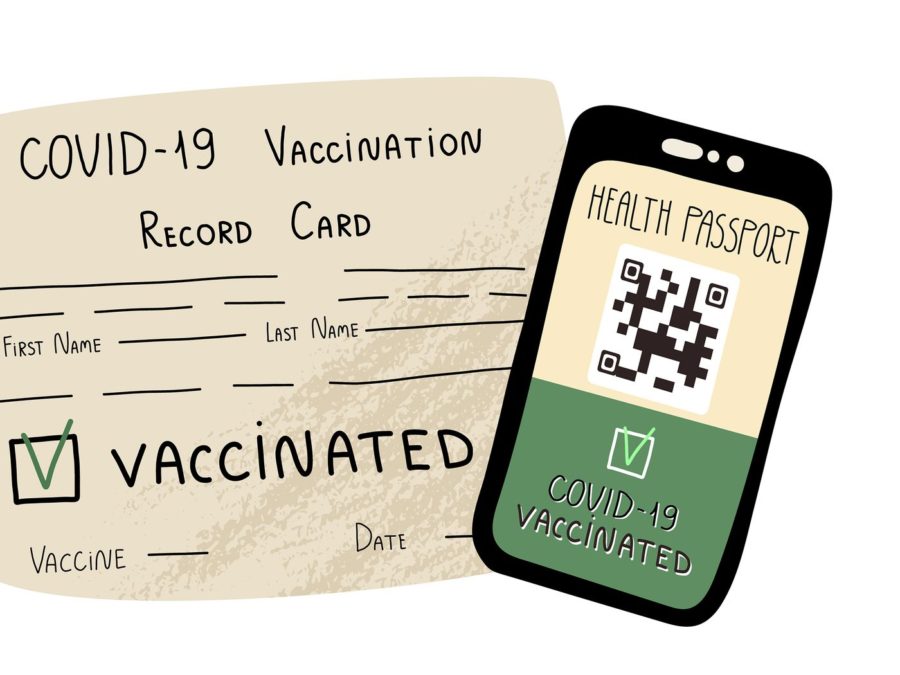RIO DE JANEIRO, BRAZIL – Criticized by the federal government, decrees requiring the presentation of a vaccine passport in public collective spaces are gaining ground in municipalities. Independently, institutions such as the Court of Appeals and the Prosecutor’s Office of São Paulo also require immunization to enter their premises.
Rules with this requirement are now a reality in 249 municipalities, equivalent to 10.1% of the cities that answered the survey conducted by the National Confederation of Municipalities (CNM).

The North Region stands out as having more cities with these rules (20.7%); while the Southeast is in last position, with only 6.6%.
The survey, conducted between September 20 and 23, interviewed 2,461 municipal managers. Considering the over 5,000 municipalities associated to the organization, CNM president Paulo Ziulkoski says that, numerically, more cities have such decrees in effect. “We can assume, with a good safety margin, that approximately 550 municipalities are adopting them.”
On Monday, President Jair Bolsonaro again criticized the vaccine passport. “Imagine if the other guy, who came in second, were here. Would he have already imposed the vaccine passport or not? I don’t think I need to answer that for you,” he said, in reference to defeated candidate in the 2018 presidential election, Fernando Haddad (PT).
“No matter how much you accuse me of anti-democratic acts, and they are just accusations, no one more than myself respects everyone’s right. The vaccine cannot be mandatory,” the President said. “I’m not against vaccines, I only respect freedom, the vaccine can’t be mandatory.”
Jurists say the vaccine passport is legal and experts see it as a further incentive to vaccinate.
São Paulo and Rio de Janeiro are among the municipalities that have adopted the vaccine passport. In the capital of Rio de Janeiro, the municipal decree establishing the proof of vaccination requirement increased the number of immunized people, but it is still controversial. Universities – which are not covered by the decree – are considering adopting a similar measure.
However, there are still people who appeal to the courts in order to be exempted from the requirement.
That was the case of the Military Club and the Naval Club. The institutions were granted an injunction authorizing their members to enter without proof of vaccination. The two institutions presented a number of reasons to challenge the decree.
One of them, in particular, was considered by Judge Elisabete Filizzola: the “absence of equality before the law”. “The decree listed clubs, gyms, conferences, museums, etc., but did not include bars, restaurants, shopping malls, stores and the like, which promote economic activities of even greater crowding potential than the appellants’ activities,” the judge wrote.
She therefore granted the injunction. The measure will be in force until Rio’s city hall provides an explanation or it is reversed on appeal.
The judge wants to know why “the supervision of the health passport is imposed on some and not on others.” The Municipal Prosecutor’s Office will appeal the decision. According to the Municipal Health Secretariat, there has been a 31% increase in vaccination in the city since the decree was announced.
HEALTH MINISTER CRITICIZES VACCINE PASSPORT
During a visit to a medical clinic in Rio de Janeiro on August 27, Health Minister Marcelo Queiroga commented on the vaccine passport, a health measure adopted in cities of Santa Catarina to fight Covid-19, in particular the Delta variant.
For the Minister, the measure seems unnecessary. He says that the main weapon against the coronavirus and the pandemic is still vaccination.
“Article 5 of the Constitution has freedom as its fundamental principle. Vaccination is a federal government policy that aims to counter the pandemic nature of Covid-19. Right now, we have the vaccine in both the first and second dose. So they get the full vaccination. And then we decided to give a booster dose. What is the passport for? I think it is an unreasonable demand. Totally inappropriate,” he stated.
According to the Minister, the important thing is to have safety protocols in place for the population and to carry out vaccination campaigns in Brazil.
“Now, in August, 80 million doses will be distributed. In September, at least 60 million doses. In September, we will receive 50 million Pfizer vaccine doses. More than 220 million doses distributed to the population,” Queiroga said at the time.
“A 58% drop in deaths in two months. How did we achieve this? Because we acted jointly with states and municipalities. In such a way that these punctual measures that municipalities launch do little to help tackle the Covid-19 pandemic,” he added.
When asked about how to encourage the population to visit a vaccination post in Brazil, Queiroga said that it is necessary to increase access to information for Brazilians, and not impose the ‘passport’ as an obligation.
“The Brazilian population wants to be vaccinated. One way is for the press to help us, as it has been doing, by informing the population well. A passport doesn’t help at all. Anything that is imposed, that is a law. Brazil currently has a health regulation in place that is among the most advanced in the world. If you start restricting people’s freedom by requiring passports, stamps, wanting to impose the use of masks by law, to be fining people, the industry of fines, we are against that,” he said.
According to the Minister, people are free and should do things according to their conscience.

